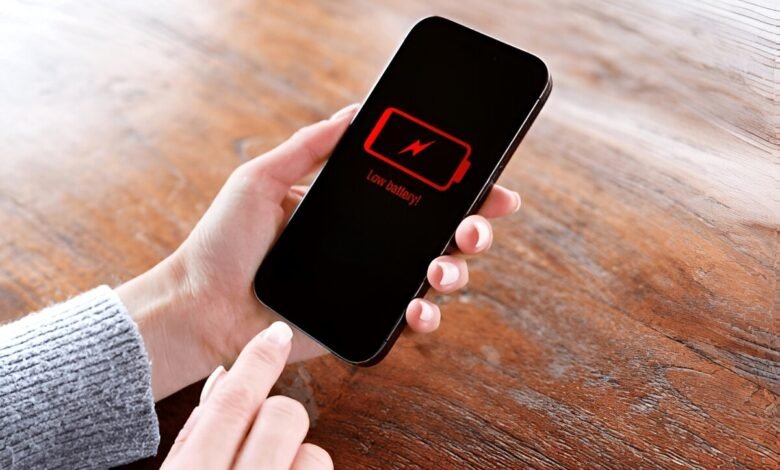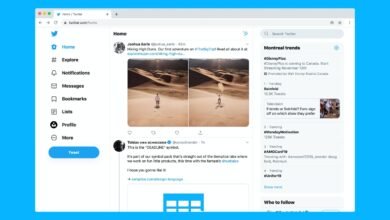
In today’s fast-paced digital world, smartphones are essential for communication, work, and entertainment. However, one common frustration many users face is a rapidly draining battery. Learning how to extend your smartphone’s battery life can save you from constant charging and improve your device’s longevity.
This comprehensive guide covers 15 actionable tips to maximize battery performance, whether you use an Android or iPhone. From optimizing settings to smart charging habits, these strategies will help you get the most out of your phone’s battery.
1. Adjust Screen Brightness and Timeout
Your smartphone’s display is one of the biggest battery drainers. Lowering brightness and reducing screen timeout can significantly extend your smartphone’s battery life.
- Use Auto-Brightness: Enable adaptive brightness (Android) or True Tone (iPhone) to adjust screen brightness based on ambient light.
- Reduce Screen Timeout: Set your screen to turn off after 15-30 seconds of inactivity.
- Avoid High Brightness Indoors: Keeping brightness at 50% or lower indoors conserves power.
2. Enable Battery Saver Mode
Most smartphones come with a built-in Battery Saver Mode that limits background processes and optimizes performance.
- Android: Go to Settings > Battery > Battery Saver to activate.
- iPhone: Enable Low Power Mode in Settings > Battery.
- Effect: This mode reduces background app refresh, limits performance, and extends battery life when you’re running low.
3. Limit Background App Refresh
Apps running in the background consume power even when not in use. Restricting background activity helps extend your smartphone’s battery life.
- Android: Go to Settings > Apps > Battery Usage and restrict background activity for power-hungry apps.
- iPhone: Navigate to Settings > General > Background App Refresh and disable it for non-essential apps.
4. Turn Off Unnecessary Connectivity Features
Wireless features like Bluetooth, GPS, Wi-Fi, and mobile data drain battery when left on unnecessarily.
- Disable Bluetooth & NFC: Turn them off when not in use.
- Use Wi-Fi Over Mobile Data: Wi-Fi consumes less power than 4G/5G.
- Limit GPS Usage: Allow location access only when needed (e.g., Google Maps).
5. Update Your Apps and OS
Outdated software can lead to inefficient battery usage. Regular updates improve performance and fix battery-draining bugs.
- Check for system updates: Go to Settings > System > Software Update (Android) or Settings > General > Software Update (iPhone).
- Update Apps: Ensure all apps are updated via the Google Play Store or Apple App Store.
6. Reduce Push Notifications
Frequent notifications wake up your screen and trigger background processes, draining the battery.
- Disable unnecessary notifications: Go to Settings > Notifications and turn off alerts for non-critical apps.
- Use Scheduled Notifications: Some apps allow bundling notifications to reduce interruptions.
7. Optimize App Usage
Some apps, like social media, gaming, and video streaming platforms, consume excessive power.
- Use Lite Versions: Switch to Facebook Lite, Twitter Lite, or YouTube in a browser.
- Close Unused Apps: Avoid keeping multiple apps running in the background.
8. Manage Widgets and Live Wallpapers
Animated wallpapers and widgets constantly refresh, consuming battery.
- Use Static Wallpapers: Opt for dark-themed wallpapers on OLED screens.
- Remove Unnecessary Widgets: Keep only essential widgets on your home screen.
9. Lower Screen Resolution and Refresh Rate
High-resolution displays and 120Hz refresh rates (on premium phones) drain battery faster.
- Reduce Refresh Rate: Switch to 60Hz in Settings > Display (if available).
- Use FHD Instead of QHD: Lowering resolution reduces GPU workload.
10. Avoid Extreme Temperatures
Batteries degrade faster in extreme heat or cold.
- Keep Your Phone Cool: Avoid leaving your phone in direct sunlight or hot cars.
- Don’t Charge While Overheating: Let the device cool before charging.
11. Use Dark Mode
OLED screens save power by turning off black pixels.
- Enable System-Wide Dark Mode: Go to Settings > Display > Dark Mode (Android) or Settings > Display & Brightness > Dark (iPhone).
12. Smart Charging Habits
Proper charging techniques extend your smartphone’s battery lifespan.
- Avoid full 0-100% cycles: Keep the battery between 20-80% for longevity.
- Use original chargers: Cheap chargers can harm battery health.
- Unplug at 100%: Overcharging stresses the battery.
13. Disable Unused Features
Turn off battery-draining features when not needed:
- Always-On Display (AOD): Disable if not necessary.
- Voice Assistants: Limit “Hey Siri” or “OK Google” wake-up commands.
14. Monitor Battery Usage
Identify power-hungry apps via built-in battery stats.
- Android: Settings > Battery > Battery Usage
- iPhone: Settings > Battery > Battery Health
15. Factory Reset (Last Resort)
If battery drain persists, a factory reset can eliminate software issues.
- Back Up Data First: Use Google Drive or iCloud.
- Reset Settings: Go to Settings > System > Reset (Android) or Settings > General > Reset (iPhone).
Conclusion
Learning how to extend your smartphone’s battery life involves a mix of smart settings adjustments, charging habits, and app management. By following these 15 proven tips, you can maximize battery efficiency, reduce charging frequency, and prolong your phone’s lifespan.
Start implementing these strategies today and enjoy longer-lasting battery performance on your Android or iPhone!
FAQs
Q1. Does fast charging damage my battery?
A: Frequent fast charging can degrade the battery over time. Use it sparingly and opt for regular charging when possible.
Q2. Should I charge my phone overnight?
A: Modern smartphones stop charging at 100%, but keeping them plugged in for long periods can generate heat, affecting battery health.
Q3. How often should I replace my phone’s battery?
A: Most batteries last 2-3 years before performance declines. Replace it if you notice rapid draining or swelling.










